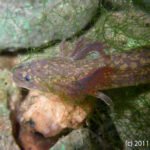Tumble - Science Podcast for Kids
A Common Sense Selection! Exploring stories of science discovery. Tumble is a science podcast created to be enjoyed by the entire family.
A Common Sense Selection! Exploring stories of science discovery. Tumble is a science podcast created to be enjoyed by the entire family.
 Episode One: The Mystery of the Barton Springs Salamander with Dr. Hayley Gillespie
Episode One: The Mystery of the Barton Springs Salamander with Dr. Hayley GillespieCreated by: Tumble Media
Started: February 24th, 2015
Status: Active, 282 episodes
Kind: Episodic
Language: English

<a href="https://soundcarrot.com/shows/shows/tumble-science-podcast-for-kids/" title="SoundCarrot.com - Children's podcasts"><img src="https://soundcarrot.com/img/sc-sm.png" alt="Listen On SoundCarrot" style="width: 200px; height: auto" /></a>Why do humans usually have five fingers on each hand? And what if one day, we could grow a new finger if we lost one?
In this episode, we talk to two scientists who study animal friendships, in different animals, and in different ways. We’ll hear from Karen Bales, who studies titi monkeys (AKA “fuzzy little guys”) and Annaliese Beery, who studies voles (AKA “the cutest rodents”). Get ready to discover how animal friends play and cuddle – and what they can teach us about our own friendships.
How did Earth get created? What did our planet begin as? Why does our world exist? What started our planet? These questions take us back billions of years to learn how Earth formed in the very beginning – and then, we’ll look to a group of mysterious asteroids that might reveal how Earth became the planet it is today.
This is a rebroadcast of one of our favorite episodes from season 9!
This is a re-broadcast of a favorite episode from 2019. We actually won our first AAAS Kavli Award for this episode, along with The Cave of the Underground Astronauts. Check it out!
We’re wrapping up 2025 with a final Mailbag episode, featuring some of our longest-running Patrons! Did you know, when you sign up to support Tumble on Patreon, you’ll get a personalized message from Marshall? And if you’ve been supporting us for years, we might just call you up to chat! We’ll meet our mysterious patron, MiloSloth and his family, and learn why they love to support the show.
How do people learn — and how can a video game help us find out? In this episode, we meet cognitive scientist Charley Wu, who built the ultimate science “mod” in Minecraft! Journey into a video game world of science to discover how and why Charley used one of the world’s most popular games to follow his curiosity about how humans learn. Featuring a “braintrust” of kid Minecraft experts to explain the game to Lindsay and Marshall, and a song inspired by The Minecraft Movie.
Why do we have snot? Do animals get stuffy noses, too? We delve into the world of thick secretions with the help of Dani Rabiaotti, zoologist and author of “Believe it or Snot: The Definitive Field Guide to Earth’s Slimy Creatures.” You’ll find out why we make so much mucus, and meet the slimiest animals on the planet. Plus, you’ll discover why scientists study slime, even though it’s super gross.
Created by: Tumble Media
Started:
February 24th, 2015
Status: Active, 282 episodes
Kind: Episodic
Language: English
When Chloe is sent off to live with her mysterious and eccentric grandmother she learns an unbelievable secret. Grandma Ivy is none other than Mother Nature herself! And Chloe is next in line to assume to the power and responsibility of the job. Can a twelve-year old learn to balance the entire world’s ecosystem while just trying to fit in at her new school? Only Mother Nature knows.
Find your next favourite Podcast
Sound Carrot is your source for Family Podcast Discovery. Verified awesome, 0% boring.
Privacy Focused
Distraction free website, no flashing banners or adverts to steal your attention.
(Some shows do contain their own ads however).
Kid verified
At first I made this site for my kids, but like any dad I got a little over excited. I hope you find it as useful as they do.
Whether you want to listen to them together in the car, or alone in your room - the content is all safe for younger ears.